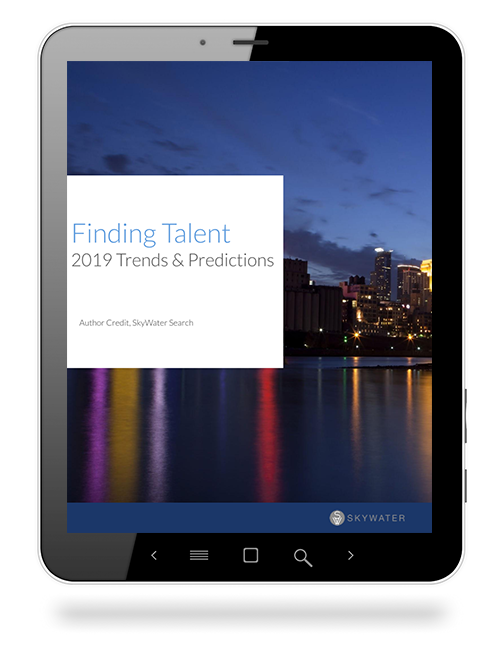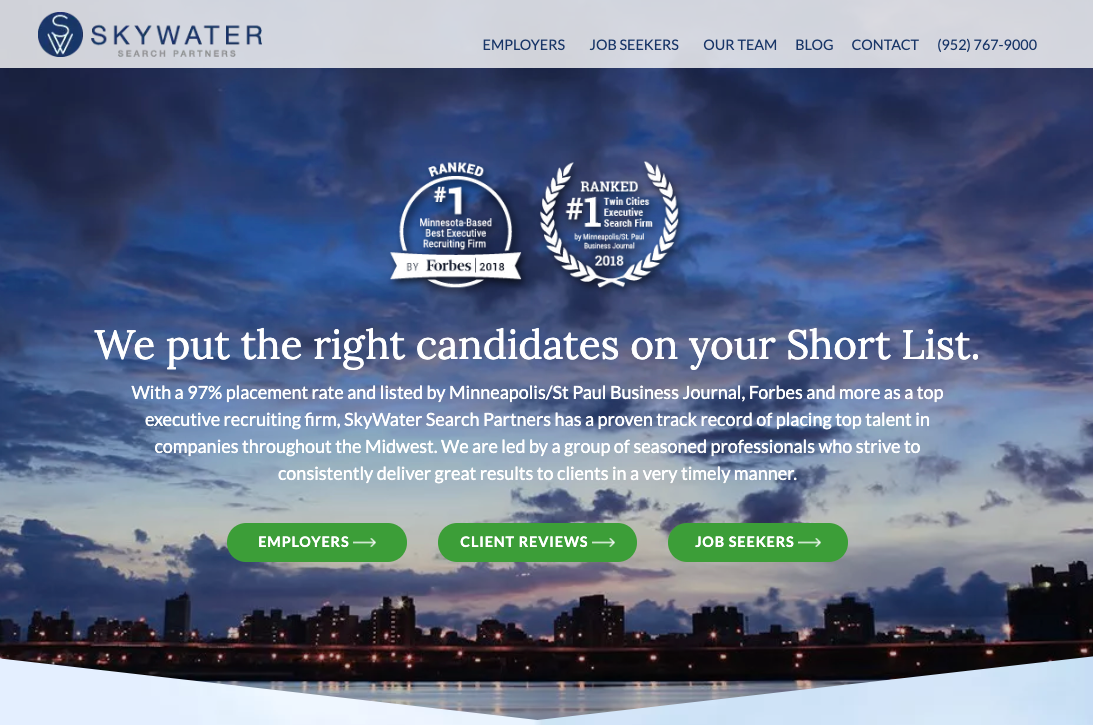A New Whitepaper from SkyWater Search Partners:

According to recent research, around 60% of hiring managers have caught applicants lying on their resumes. During the recession, numbers rose as competition became for jobs became so fierce yet it still continues today. The impact of hiring a candidate who has deliberately misled the hiring manager on their resume can be destructive.
Everyone, no matter who they are, from the office rookie right up to the President of an organization, makes mistakes at work. When you are a manager or a leader of a team, however, those mistakes are magnified. As a leader, whatever the reason for your error, it is vital that you are accountable and own up to your error.
Earlier this week the Minneapolis/St.Paul Business Journal announced their 2019 Best Place To Work award recipients. For the fifth year, SkyWater Search Partners has made the list. We are so humbled and honored to make the list again this year. Here are a few words about what this award means to us.
Photo: 2019 Renaissance Walker Winners
How to Say No to a Promotion Without Losing The Career Opportunities You Really Want
Whether you’ve been in the full-time work force for a week or a couple of decades, you’ve probably noticed that there is no shortage of “career advancement” advice out there. But have you noticed that most of that advice is pretty narrow? So narrow, in fact, that it goes in one direction only: up, up, up. Any great career coach, recruiter or mentor can give you solid advice on how to ascend the all-important promotion track. But what if you love what you’re doing right now? What if you don’t have the skills – or the aptitude – to take on that job one rung up the corporate ladder? Conversely, maybe you’re one of the growing number of successful professionals who are more than qualified to succeed in that bigger job – but you just don’t want it. You may fear that it would rob you of precious family or social time.
As a candidate, you’ve probably gotten plenty of advice on how to get your resume past the ATS (Applicant Tracking Systems, those AI-powered screeners most employers and recruiters use these days).
That’s all very useful. But how will your resume fare in the next round? How do you survive the human scan?
Interview No-Shows, Reschedules, and Last-Minute Cancellations
What Every Recruiter Can Do to Reduce Candidate Flake-Outs
How many times have you gotten word from your client that a top candidate you presented and endorsed has failed to show up for their interview?
SkyWater Search Partners is delighted to announce the launch of our new website.
Setting Client Expectations: 3 Essential Tips Every Recruiter Needs To Know
The delicate matter of setting and managing client expectations in a competitive industry sector can present a dilemma for even the most experienced recruiters. Achieving the all-important retained or even exclusive assignment can be at times be a feat in itself in markets where candidates are queueing up for vacancies – but what of the industries where the so-called ‘war for talent’ is well and truly raging?















